Speaker
Description
Multiple studies have outlined that the COVID-19 pandemic and government interventions to curb the spread of the virus are likely to have an effect on mental health and substance use patterns [1]. In this study, we explored the presence of psychoactive pharmaceuticals, illicit drugs and related human metabolites in 24-h composite wastewater samples that were sampled weekly over the period of twelve months (December 22, 2020 to December 14, 2021) from the central WWTP of Riga, Latvia. The analysis was performed via qualitative suspect screening approach using three separate high-resolution mass spectrometry (HRMS) methods, which relied on reversed-phase liquid chromatography (RPLC), hydrophilic interaction liquid chromatography (HILIC) and direct infusion HRMS.
In total, 39 out of 149 substances were detected throughout the sampling period, including pharmaceuticals (e.g., antiepileptics, antidepressants and antipsychotics), illicit drugs (e.g., MDMA, cocaine, amphetamine, etc.) and new psychoactive substances (alpha-PVP). The data were evaluated in relation to COVID-19 incidence rate and the extent of containment and closure policies. For some compounds we observed temporal changes that may be potentially linked with the consequences of the pandemic. For instance, higher detection rates were observed for some illicit drugs during periods, when restrictions on public events were relaxed.
References:
[1] Montgomery, A.B., Bowers, I., Subedi, B., Trends in Substance Use in Two United States Communities during Early COVID-19 Lockdowns Based on Wastewater Analysis. Environ. Sci. Technol., 2021, 8, 890–896.

